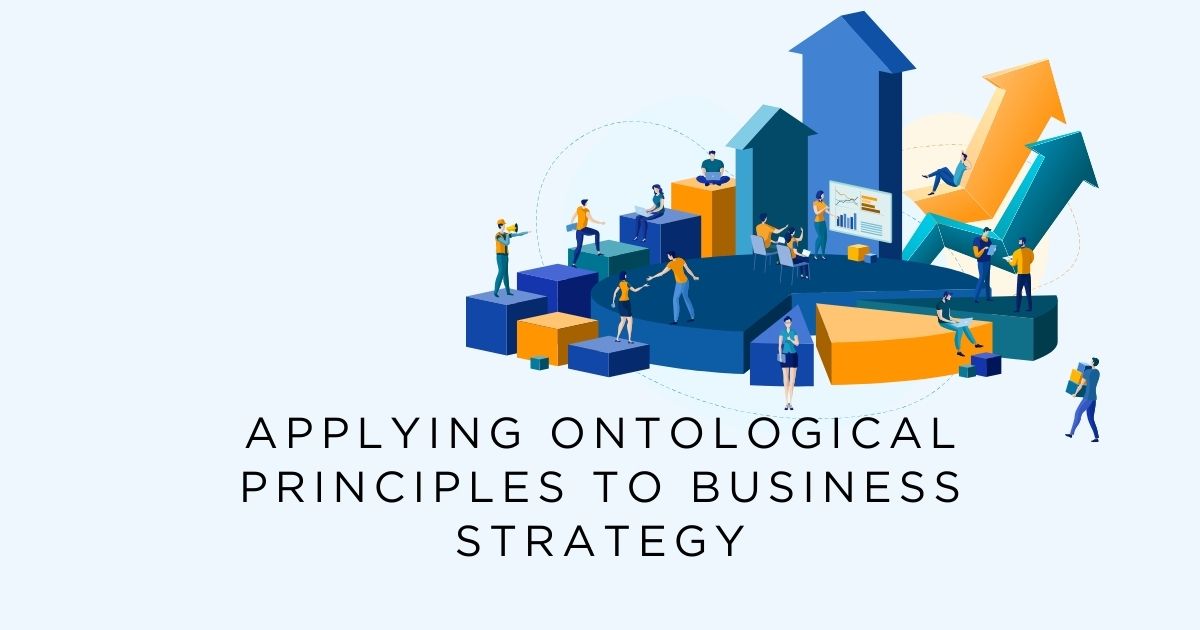This article explores key ontological principles relevant to strategy, case studies of successful businesses using these principles, and practical steps for entrepreneurs to integrate ontology into their strategic planning.
In the dynamic world of entrepreneurship, strategic planning is crucial for sustainable growth and long-term success. While many frameworks exist, applying ontological principles to business strategy can provide a unique and powerful approach. Ontology, the philosophical study of being and existence, can help entrepreneurs understand the fundamental nature of their business, its purpose, and how it interacts with the broader environment.
Introduction: Overview of Ontological Principles in Strategic Planning
Ontology examines the nature of reality and existence. In the context of business, ontological principles help leaders and entrepreneurs understand the core essence of their organization, including its identity, purpose, and the relationships it forms. By focusing on being and existence, entrepreneurs can develop a more profound and holistic understanding of their business, enabling them to create more robust and adaptable strategies.
Key Ontological Concepts Relevant to Strategy
- Being and Existence: Understanding the essence of your business, its core values, and its purpose is the foundation of ontological strategy. This involves asking fundamental questions such as, “What is the true nature of our business?” and “Why do we exist?”
- Interconnectedness: Recognizing that all elements of your business are interconnected is crucial. This includes understanding how different departments, processes, and stakeholders interact and influence each other.
- Identity and Authenticity: Maintaining an authentic identity that aligns with your core values and mission is vital for long-term success. An authentic business attracts loyal customers, committed employees, and trustworthy partners.
- Temporal Continuity: Acknowledging the temporal aspect of your business involves understanding its past, present, and future. This helps in creating strategies that honor the business’s history while innovating for the future.
- Potentiality and Actuality: Differentiating between what is potential and what is actual in your business operations can help in identifying opportunities for growth and areas needing improvement.
Case Studies of Successful Businesses Using Ontological Principles
Case Study 1: Patagonia
Patagonia, the outdoor clothing and gear company, exemplifies the application of ontological principles. By understanding its core essence as a business committed to environmental sustainability, Patagonia has built a strong identity and purpose. The company’s interconnectedness with environmental causes and authenticity in its mission have earned it a loyal customer base. Patagonia’s temporal continuity is evident in its consistent commitment to sustainability over the decades, and its strategies focus on actualizing its potential to drive positive environmental change.
Case Study 2: Apple
Apple’s success can be attributed to its deep understanding of its identity and authenticity. By focusing on innovation, design, and user experience, Apple has maintained a consistent brand identity. The company’s strategies reflect its interconnectedness, integrating hardware, software, and services seamlessly. Apple’s temporal continuity is demonstrated through its evolution from a computer company to a leading innovator in consumer electronics and services, continuously actualizing its potential in various markets.
Case Study 3: Zappos
Zappos, the online shoe and clothing retailer, uses ontological principles by prioritizing its core value of exceptional customer service. Understanding its identity as a customer-centric company, Zappos has built strategies around delivering happiness to customers. The company’s interconnectedness is reflected in its organizational culture, which emphasizes employee satisfaction and customer service. Zappos’ authenticity and commitment to its values have driven its success and customer loyalty.
Practical Steps for Entrepreneurs to Apply Ontology to Their Strategy
- Define Your Business’s Core Essence: Start by understanding the fundamental nature of your business. Identify your core values, mission, and purpose. This requires introspection and may involve discussions with key stakeholders to ensure a shared understanding.
- Analyze Interconnectedness: Map out how different parts of your business interact and influence each other. This includes departments, processes, employees, customers, and partners. Understanding these relationships can help in creating more cohesive and effective strategies.
- Maintain Authenticity: Ensure that your business actions and strategies align with your core values and mission. Authenticity builds trust and loyalty among customers and employees. Regularly revisit your values and mission to ensure they remain relevant and guide your strategic decisions.
- Acknowledge Temporal Continuity: Reflect on your business’s history, current state, and future aspirations. Use this understanding to create strategies that honor your past while positioning your business for future growth. This involves setting long-term goals and continuously innovating.
- Identify Potentiality and Actuality: Assess your business’s current capabilities and potential opportunities. Differentiate between what is currently achievable and what requires development. This helps in prioritizing initiatives and allocating resources effectively.
- Implement Continuous Learning and Adaptation: Embrace a mindset of continuous learning and adaptation. The business environment is constantly evolving, and staying adaptable ensures your strategies remain relevant. Encourage a culture of learning within your organization to foster innovation and resilience.
- Engage in Reflective Practices: Regularly engage in reflective practices to assess your business’s progress and alignment with ontological principles. This can involve regular strategy reviews, feedback sessions, and open discussions with your team.
- Leverage Technology and Data: Use technology and data analytics to gain insights into your business operations and market trends. This helps in making informed decisions and identifying areas for improvement and growth.
- Build Strong Relationships: Foster strong relationships with stakeholders, including customers, employees, partners, and the community. Understanding their needs and perspectives enhances your interconnectedness and supports your strategic goals.
- Promote a Values-Driven Culture: Cultivate a culture that reflects your core values and mission. This involves leading by example, recognizing and rewarding value-driven behaviors, and ensuring alignment between individual and organizational goals.
Join Our Free Inspire Membership
Applying ontological principles to your business strategy can transform your approach to growth and success. By understanding your business’s core essence, maintaining authenticity, and recognizing interconnectedness, you can develop strategies that are both robust and adaptable. At CEO Space International, we are dedicated to supporting entrepreneurs in their growth phase. Our Inspire membership offers valuable resources, networking opportunities, and expert insights to help you integrate ontological principles into your strategic planning.
Join our free Inspire membership today and take the first step towards a more profound and holistic approach to business strategy. Visit Inspire Membership to get started.

